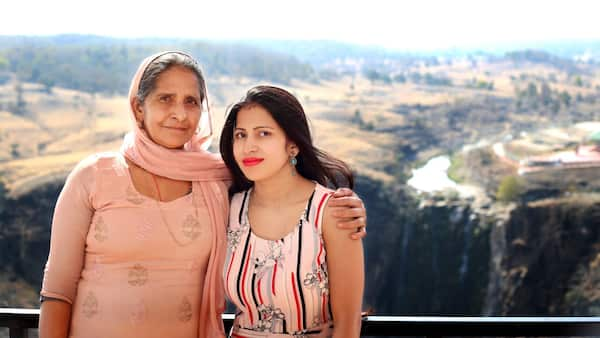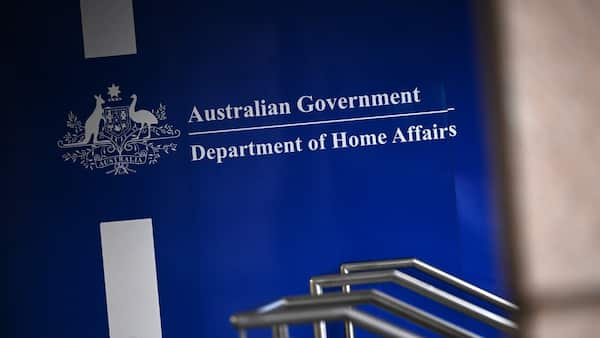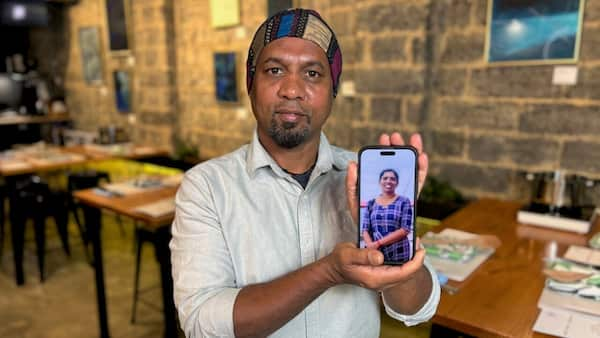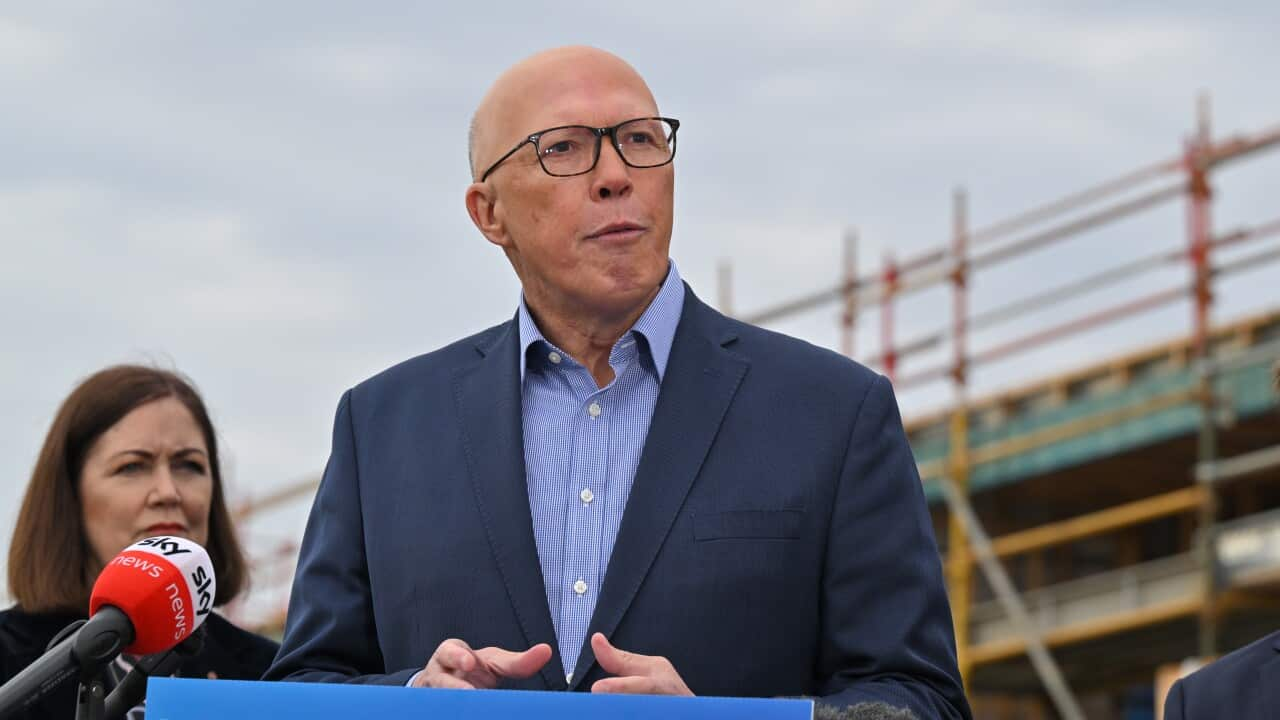Opposition leader Peter Dutton has vowed a Coalition government would not cut Australia's annual intake of parent visas, after sustained pressure to reveal where his planned cuts to permanent migration would come from.
The Coaliton has vowed to reduce the annual intake of permanent migrants from 185,000 to 140,000 — but has until now reserved detail regarding which programs would be cut until after the election.
Despite Labor nearly doubling the annual cap of parent visas to 8,500 places, the backlog has continued to balloon.
When asked on Saturday if he would reduce those numbers to the previous Coalition government's setting of 4,500 places per year, Dutton said: "We'll take that advice when we get into government in relation to where the economic settings are and where the demands might be."
On Monday, SBS again asked the Opposition leader if he would reduce parent visas.
"We're going to cut migration by 25 per cent," Dutton said.
Asked a second time he said: "[Record high migration] is a significant contributor to young Australians being locked out of housing."
Finally, after a third attempt, he said: "In relation to parents, I've been clear about this — it's an important part of the migration program.
"We're not going to reduce those."
LISTEN TO

'Insane' wait times deter migrants from applying for parent visas as delays worsen
SBS Hindi
09:46
'This cuts close to home'
This commitment will be heard by the families of more than 150,000 prospective parent migrants currently on the waitlist — with average wait times of 31 years.
For the Mayur family, who live in Melbourne's east, in the marginal seat of Deakin — held by Opposition housing spokesperson Minister Michael Sukkar — it's an issue that will sway their vote.
"I'm not going to be casting a vote based on a major economic policy," Supriya Narayanan told SBS.
"But this is something that actually cuts close to home."
Supriya's mother, Viji, has been on the wait list for five years already. She lives in India alone. The family have applied for a contributory parent visa for her — at a cost of $48,000, with an average wait time of 14 years.
"I would very much like to live with my daughter," Viji said.
"The long wait is having an emotional toll also."
LISTEN TO

Lives on hold, contributions unrecognised: people awaiting residency petition parliament
SBS News
05:07
Viji's son-in-law, Mayur Deivasigamani, says the wait times are unfair.
"We're paying a lot of money to bring her over here. So, a 14-years wait, when you're paying so much, I don't think is reasonable."
"There are thousands of people in our position, so my sincere request to whoever forms government after the election is to increase the numbers of parent visas so the wait time isn't so long."
'The offset would be in the billions'
Despite the increasing demand for parent visas, political pressure over Labor's handling of immigration — — has left little appetite to reform this complex system.
The Parkinson Migration Review commissioned by Labor in 2022 found the parent visa system was "cruel and unnecessary" and forced families to wait for a visa "that would never come".
It has recommended changes such as increasing the number and length of temporary visas issued for parents, as well as potentially introducing a visa lottery.
Former deputy secretary of the Immigration Department Abul Rizvi said a lottery would be "unfair to those who are already in the list and have been waiting for years".
Rizvi said that, while it's important for the government to offer skilled migrants the chance of family reunion, bringing aging migrants into the country is costly to the already stretched health and aged care system.
"As someone who advocated for parent visas to be increased, the trade off is Treasury will say to you: 'Okay, then you find the offsets in the budget to pay for this.'"
"And the offsets would be in the billions."
LISTEN TO

Nige has waited 16 years to reunite with his wife. Now, he fears they never will
SBS News
07:18
The Parkinson Review also found the average cost of a single parent migrant to Australia was $400,000 over their lifetime, even though all families are required to pay for their parent's private health insurance.
Deivasigamani said there are other intangible costs to the community by not offering parent visas.
"For us, it's also about culture. Our son can hardly speak Tamil now … so to have family here would help him with the language and impart the Indian culture, which is important," he said.
"We've worked in Australia for two decades, we pay our taxes, so I feel like we're being treated a bit unfairly compared to other Australians."
Major-party migration agendas
Speaking at a Western Sydney Forum a fortnight ago, the prime minister said he was well aware that this issue was one faced by some members of his audience.
"What we have to bear in mind for many residents in Western Sydney who are migrants … they don’t want Mum and Dad to have no access here either forever."
But when asked if he would commit to increasing the cap, he only said: "What we’ll do is run an orderly migration program."
Labor has said it will continue its current plans to reduce migration as per Treasury forecasts, with no new immigration-policy announcements throughout the campaign.
Treasury forecasts net migration to return to 260,000 by 2024-25, and 225,000 the following year, although it previously underestimated net migration numbers.
Meanwhile, the Coalition has said it would reveal details of its planned 25 per cent reduction to the permanent migration program after the election, which would shrink the intake from 180,000 per year to 135,000 — a reduction of 45,000 visas.
Dutton has also said a Coalition government will cut net overseas migration — i.e. the difference between the number of people entering and leaving Australia — by 100,000 places.
Immigration minister Tony Burke told SBS the Coalition’s proposed cuts to permanent migration were "reckless" and the pledge to not cut parent visas would mean deeper cuts would be made to the skilled visa category.
"I don’t see how Peter Dutton hits his targets without us having fewer of the people we need to work in aged care, pick fruit and build houses. It’s pretty reckless," he said.
Visit the to access articles, podcasts and videos from SBS News, NITV and our teams covering more than 60 languages.


